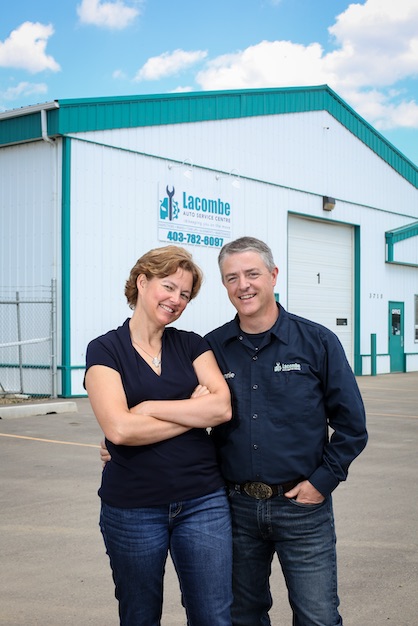
By Allan Janssen
When we choose the CARS magazine Shop of the Year, we’re looking for businesses that have had some significant change over the last 12 months. We didn’t expect to find shop owners that have engineered a total business transformation.
Meet Elaine and Donnie Lysons, new to the aftermarket and proud owners of Lacombe Auto Service Centre in Lacombe, Alta.
Since purchasing in March 2018, they’ve examined every function, process, and piece of the business, and either overhauled it or replaced it entirely.
“We know where we want to take the shop,” says Donnie, “and we’re only part way there.”
If nothing else, they’ve had been an impressive start.
To us, business is business.
And this is a good
business to be in.
There’s huge growth potential.
You just have to manage it
in such a way that you
bring the potential out of it.’
—Donnie Lysons
Donnie and Elaine describe themselves as “serial entrepreneurs,” having worked in several industries, starting with agriculture, where you have to have a mechanical aptitude in order to be successful. They farmed and ranched in Vermilion, Alta. and, later, Ponoka, Alta.
On the side, they got into venture capitalism.

Elaine has a business diploma from the Northern Alberta Institute of Technology, and Donnie attended a couple of years at University of Alberta. But they describe their true education as the school of hard knocks.
They joined a venture capital pool, investing in start-up companies and ultimately sitting on the board of directors of three different publicly traded companies. Along the way, they learned how to evaluate businesses, read spread sheets, and determine value.
They did well, but yearned for something that would be more suitable for their whole family – a scalable business that could be managed, rather than ‘worked’ every minute of the day.
They were determined to own the real estate, and it had to be nearby, so wouldn’t have to move. Above everything, it had to be a family business, with opportunities for their daughter Samantha, 22; and their sons Daniel, 24; and Mitchell, 17.
When they came across 2A Auto, it ticked every box
“This is an 18-year-old shop with a good reputation in the Lacombe Region,” says Elaine. “The former owner, Dave Boere, did a great job of building a loyal customer base. To us, that was gold. He should be really proud of what he built.”
Getting into the auto repair industry did not scare them.
“The business model is actually very good,” says Donnie. “There are not a lot of businesses where you don’t have to carry huge volumes of inventory, and where you get paid immediately so there’s not a lot of accounts receivable.

He understands that the automotive industry in general is in a period of fundamental change.
“That’s what attracted us to this industry,” he says. “There are so many industries that are controlled by large organizations, conglomerates, and chains. Most family businesses these days are franchises. We wanted something that was more independent. We wanted to have control of the business so we would succeed or fail on our own merits.”
As for concerns that automotive maintenance and repair is a dying business, he doesn’t buy it.
“We live in a northern climate, so we’re always going to need automobiles. Whether they’re hybrids or straight internal combustion engines, they’re still going to need repairs.
Well before taking ownership of the shop, they did research on management training. And that’s when they found Murray Voth.
At the time he was still with ProShop, the NAPA-centric management training program. (He has since started his own management consultancy, RPM Training.) Elaine and Donnie took a three-day Shop Improvement Program (SIP) course, and dug in.
“They just ate it up,” says Murray. “And they were in the fortunate position of not having developed bad habits that they had to get rid of. They didn’t start out as technicians, like so many of the people in our industry. They started off learning the most efficient way to operate.
Eventually they joined an RPM MasterMind group – a coaching and support group with like-minded owners.

“Murray has been our mentor and we went along with a lot of what he and the group suggested,” says Elaine.
“I think other members of the group find us interesting,” says Donnie. “Their question was always what attracted us to this industry, because we aren’t mechanics. I would simply say, ‘Does the president of Westjet know how to fly a plane?’ To us, business is business. And this is a good business to be in. There’s huge growth potential. You just have to manage it in such a way that you bring the potential out of it.”
“It has been a real privilege to work with them,” says Murray. “They’re learning a lot, but they also bring a lot to our group and to me. They’ve made me up my game. I have to be ready for them because they’ll ask the tough questions!”
And with that input, Elaine and Donnie were off.
Change in direction
The first thing was a new name, one that reflected the community they served rather than the highway on which the business was founded.
Next was a comprehensive management software system to tie the front end to the back, incorporate a digital vehicle inspection program, enable text messaging to clients, manage inventory, connect to their part suppliers, keep their books, and track their key performance indicators.
They settled on a combination of AutoServe1 and Protractor shop management software.
And then Donnie and Elaine began establishing partnerships with a wide variety of vendors to help them streamline every aspect of the business.
This included working with Alberta Motor Association, the Alberta Motor Vehicle Industry Council, Workers Compensation Board, Alberta Blue Cross, Identifix, Mitchell ProDemand, Alldata, Google, Facebook, Yelp, Twitter, Linked In, and a number of Lacombe community sites.
They also became one of the first independent repair shops in Alberta to offer Paybright – a financing service for customers.

“It was challenging to get up to speed,” says Elaine. “As new owners, the community has you under a microscope. There are some things we’ve held back on because you can’t get too far out ahead of your customers.”
Donnie agrees. “The hardest part is organizing and scheduling your work,” he says. “It’s very tempting to say yes to every customer, instead of saying, ‘I’m sorry, we can’t accommodate you today. How about tomorrow?’ But you have to learn how to say that.”
With a focus on offering the best value and service in the market, the Lysons learned to watch their key performance indicators closely. With guidance from Murray Voth, hey were able to adjust some under-performing areas fairly quickly.
“Our belief is that customers want a high level of customer service; they want to know we will back up our work with excellent warranties,” says Elaine. “They want us to be readily available to work on their car when it needs it, but also have their back by giving them a heads up on what is coming in terms of maintenance/repairs in the near future.”
A change in culture
The most important development of all was behind the scenes.
“We want to run a maintenance shop where we do regular inspections, so our customers don’t get stranded at the side of the road,” says Donnie. “When everyone knows there’s a problem coming, the customer can budget for it, and the shop can plan for it. And, yes, there will be the occasional emergency, but that is not the norm. The norm is scheduled maintenance and inspections, with repairs done in a timely manner.”
He describes a breakdown shop as “pure chaos,” with customers wanting their cars fixed cheap and fast.
“It becomes a matter of ‘Get it out the door as quick as possible.’ It’s pure adrenaline in the shop, everyone running as fast as they can. To me that would be insanity,” he says.
Having the right team in place was going to be critical to mission success, he knew, and it forced them to confront one of the biggest problems facing the industry: the availability of skilled technicians.

“They hadn’t thought of that piece,” says Murray. “Or if they did, they’d thought that would be easy. It’s not easy. We’re all struggling with that.”
When the right players were in place, it was up to Elaine and Donnie to define the culture of the business.
“We wanted a very tranquil, calm place to work,” says Donnie. “Our technicians are all clean-cut family men. There’s no swearing in the back, no yelling, no smoking, no drinking. It’s kind of a nerdy group, to be honest. But we recognize that everyone’s an adult here. Everyone is responsible for their own work. It’s calm and organized, and that really appeals to some people.”
To that end, they developed a comprehensive employee handbook that defined the culture they were hoping to create.
“We found it to be exceptionally helpful,” says Elaine. “We can’t expect our employees to behave in a certain manner if they don’t know what is expected of them. The rules are in black and white. Our expectations are very clear. I think they’ve found it to be a positive experience. They don’t have to guess at how we want them to operate.”
Next stage
Within the year, Donnie and Elaine hope to embark on some renovations, to beautify the premises, make the waiting area more comfortable, and streamline the back of the shop.
“Maybe at Christmastime when it gets slow,” says Elaine. “It’s a good thing we waited to make any physical changes because we’re still changing our minds about what we want. It’s still taking shape.”
The ultimate goal, however, is to come across more professionally.
“We’ve been told we have a good-looking shop. But I’ve seen some great looking shops and I’m envious,” says Donnie. “Our vision is having 80 per cent of our day booked a month in advance, customers who have high expectations of us, and a competent staff that can meet those expectations every time.”
“We owe a lot to Murray Voth and the members of our Mastermind group,” says Elaine. “They are a great group of mentors for a couple of rookie shop owners. We would not have been able to accomplish such a long list without their help.”
Murray says they should not be too quick to deflect the credit for their success.
“They bought a place not knowing the industry, and they made money right out of the gate. They retained their people, they introduced their employees to a ton of changes, and through it all, they minimized the loss of customers who were used to the old way.”
Donnie is well aware of his rookie status.
“There are a lot of shop owners who have been doing all the right things for years, and they deserve all our respect,” he says. “I look on this as an award for doing what so many people are doing to improve not only their business but the entire industry.”

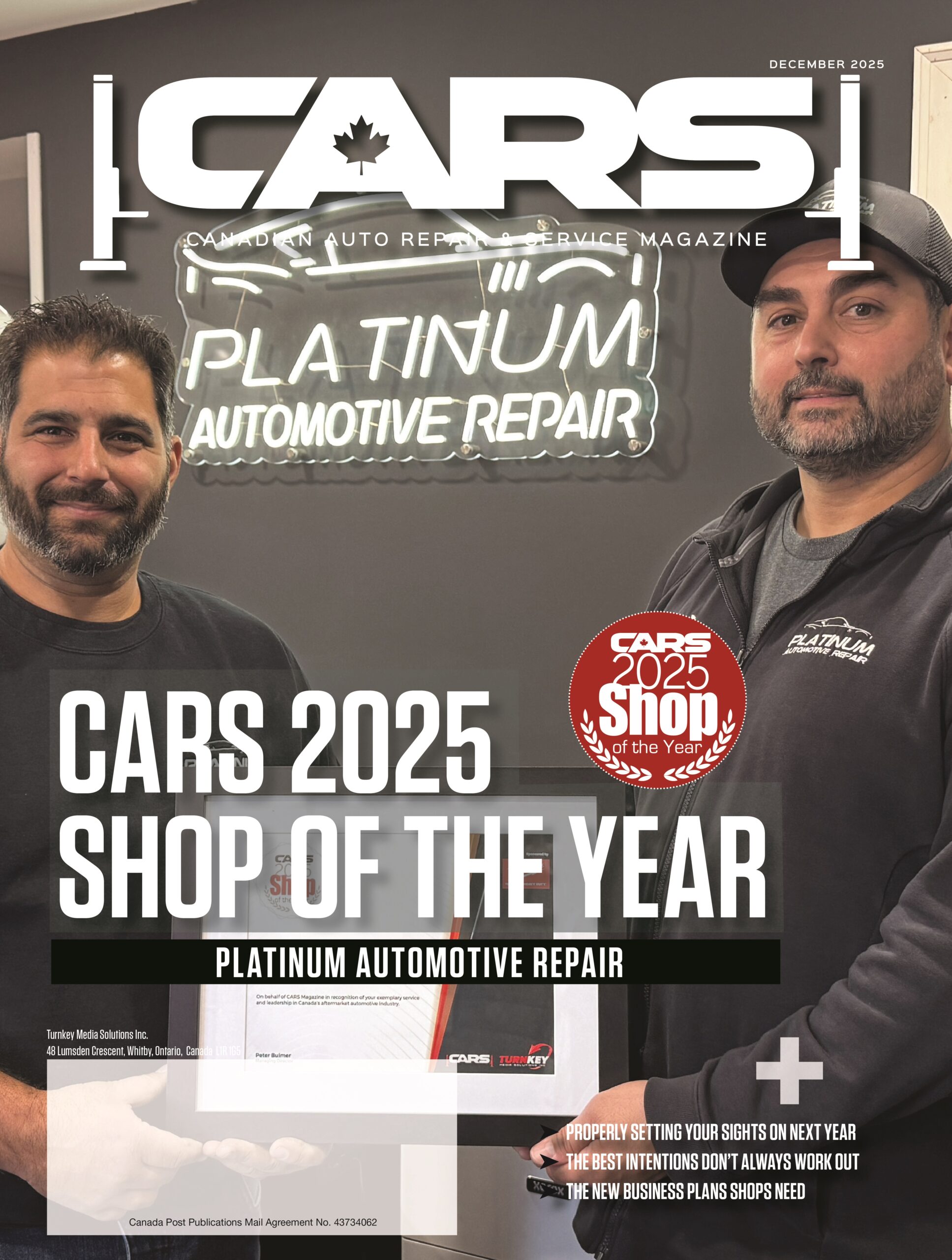
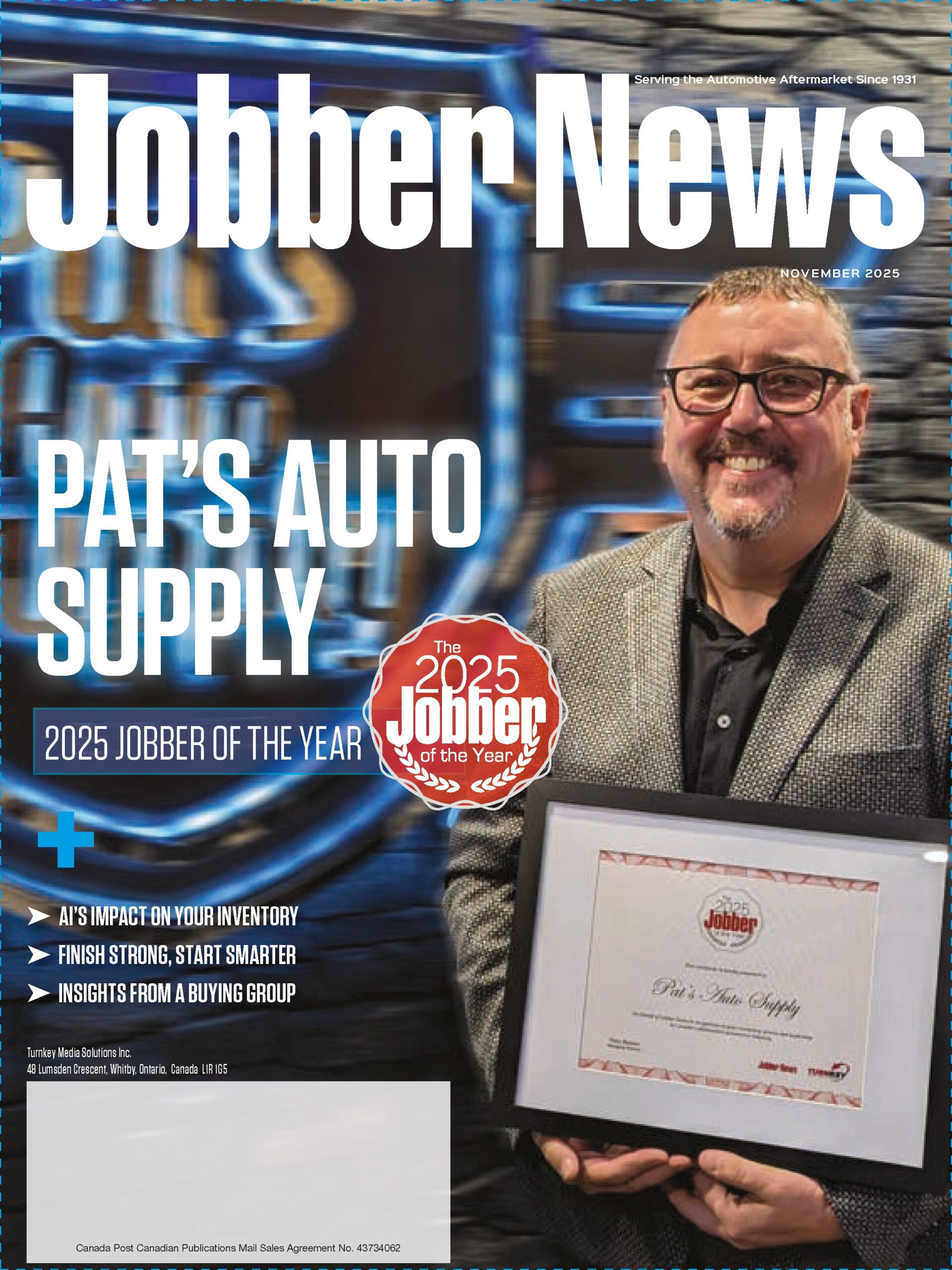
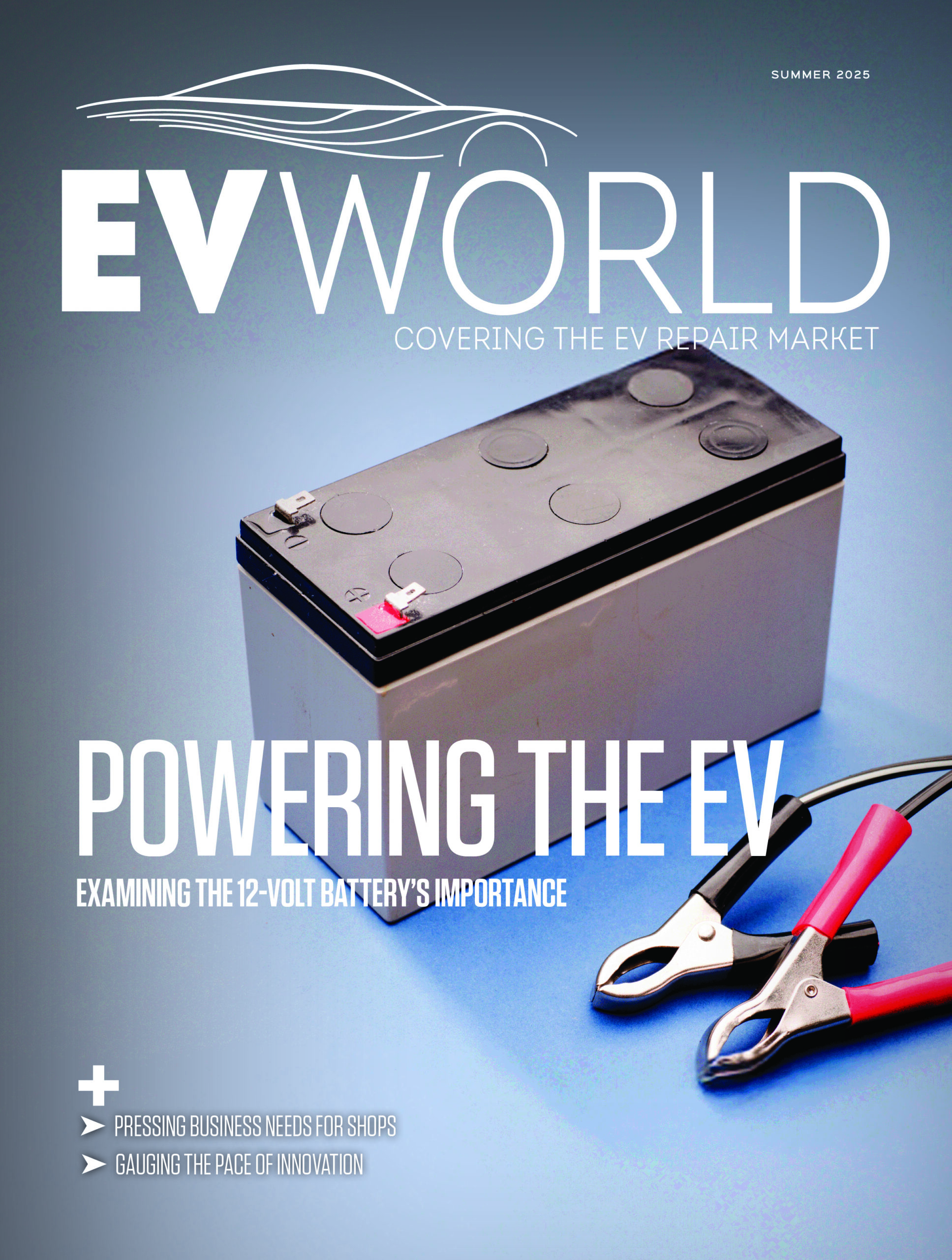






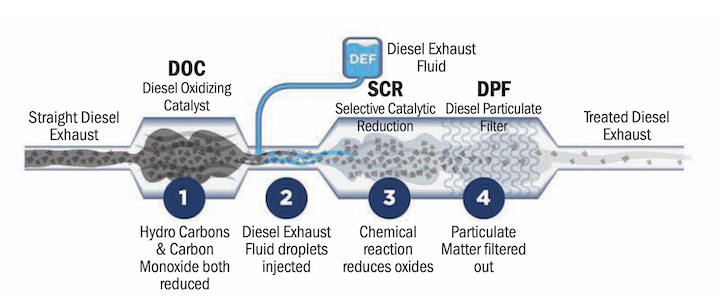
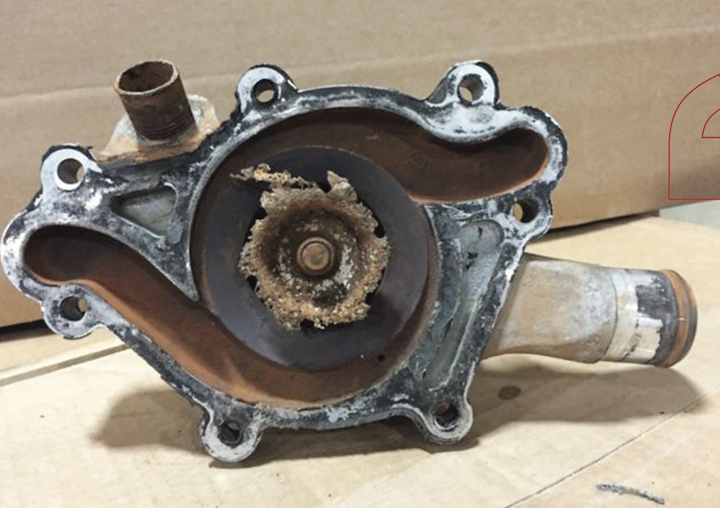

Leave a Reply